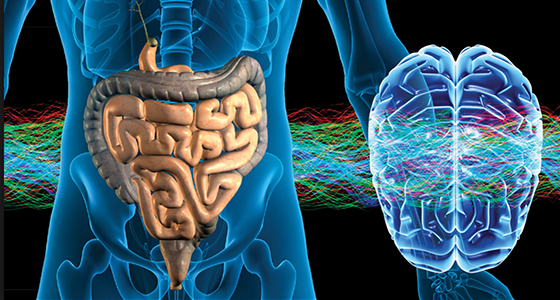Spoiler: we really do have gut feelings.
Food is something we find ourselves always thinking about and there’s a good reason for that. We have a ‘second brain’ in our gut that regulates the digestion and movement of our food from one end of the gastrointestinal tract to the other. Our gut brain and main brain are connected and influence mood, behaviour and mental health. Our gut is home to trillions of microbes, making up one third of faeces. Over the last decade, scientists have realised that most of these bacteria are beneficial to both our brain and our guts, and without them our guts don’t function properly.
People with autism often suffer from gut problems, but nobody has known why. The work of our scientists have discovered the same gene mutations – found both in the brain and the gut – could be the cause. These gene mutations cause changes in how the gut works as well as changing the balance of the bacteria in the gut. Different gut bacteria in turn alter gut function and worsen gut health via a detrimental feedback loop.
Join Associate Professors Elisa Hill-Yardin and Ashley Franks, who will discuss how changing the way neurons communicate in the brain can alter the gut and the microbial communities we need for health. They will explore how combining neuroscience, microbiology and advanced genetics allows us to provide a holistic view of the gut-brain axis, how it becomes unbalanced and how we can engineer changes to ease dysbiosis and gut dysfunction.



